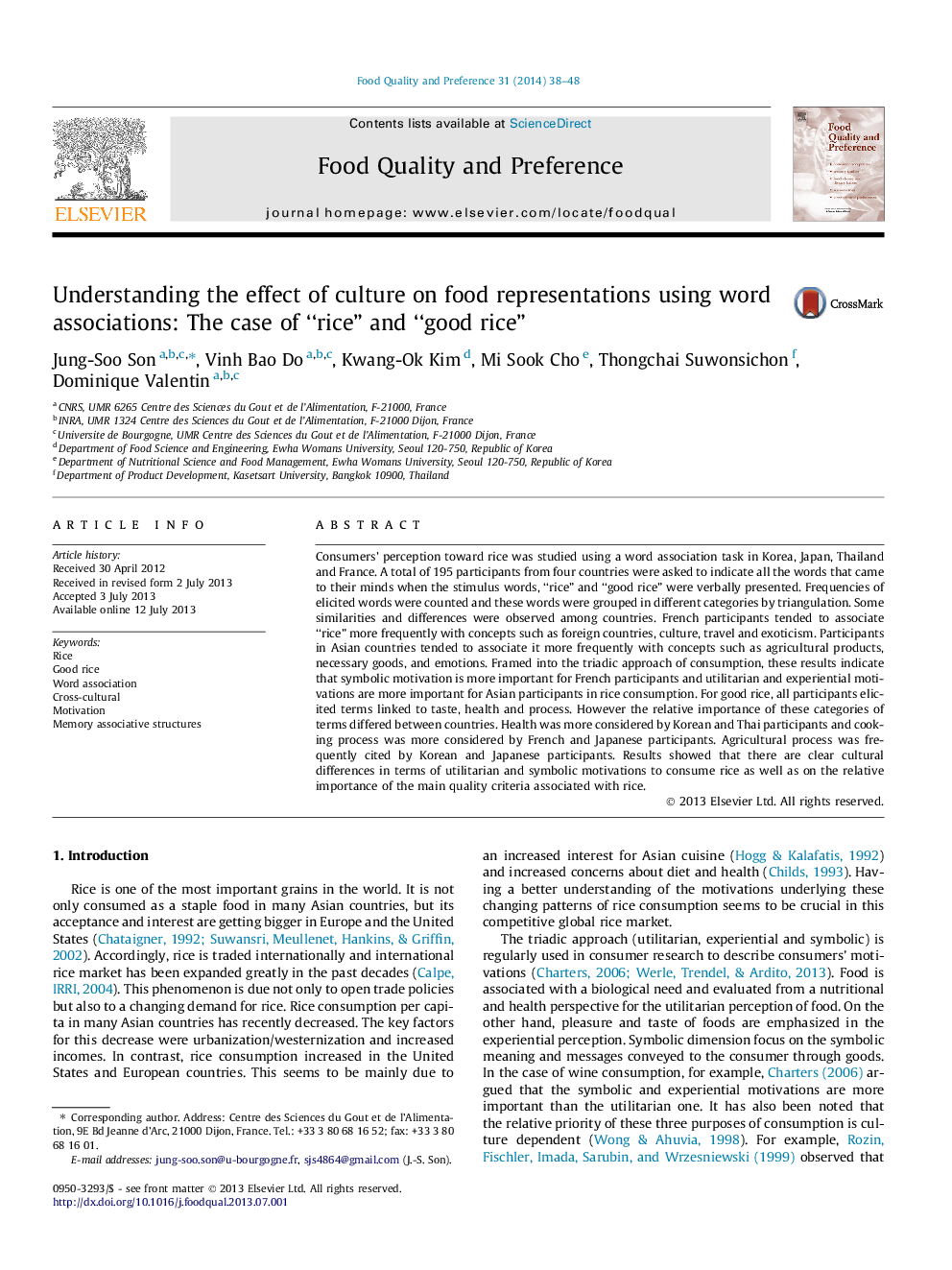| کد مقاله | کد نشریه | سال انتشار | مقاله انگلیسی | نسخه تمام متن |
|---|---|---|---|---|
| 4317300 | 1613165 | 2014 | 11 صفحه PDF | دانلود رایگان |
• Cultural influence on representation of “rice” and “good rice” was studied.
• Different dietary experiences influenced consumers’ constructs towards “rice”.
• Different values were emphasised for “good rice” in each country.
• Different weights to the tradition, health, and sensory dimensions were observed.
Consumers’ perception toward rice was studied using a word association task in Korea, Japan, Thailand and France. A total of 195 participants from four countries were asked to indicate all the words that came to their minds when the stimulus words, “rice” and “good rice” were verbally presented. Frequencies of elicited words were counted and these words were grouped in different categories by triangulation. Some similarities and differences were observed among countries. French participants tended to associate “rice” more frequently with concepts such as foreign countries, culture, travel and exoticism. Participants in Asian countries tended to associate it more frequently with concepts such as agricultural products, necessary goods, and emotions. Framed into the triadic approach of consumption, these results indicate that symbolic motivation is more important for French participants and utilitarian and experiential motivations are more important for Asian participants in rice consumption. For good rice, all participants elicited terms linked to taste, health and process. However the relative importance of these categories of terms differed between countries. Health was more considered by Korean and Thai participants and cooking process was more considered by French and Japanese participants. Agricultural process was frequently cited by Korean and Japanese participants. Results showed that there are clear cultural differences in terms of utilitarian and symbolic motivations to consume rice as well as on the relative importance of the main quality criteria associated with rice.
Journal: Food Quality and Preference - Volume 31, January 2014, Pages 38–48
